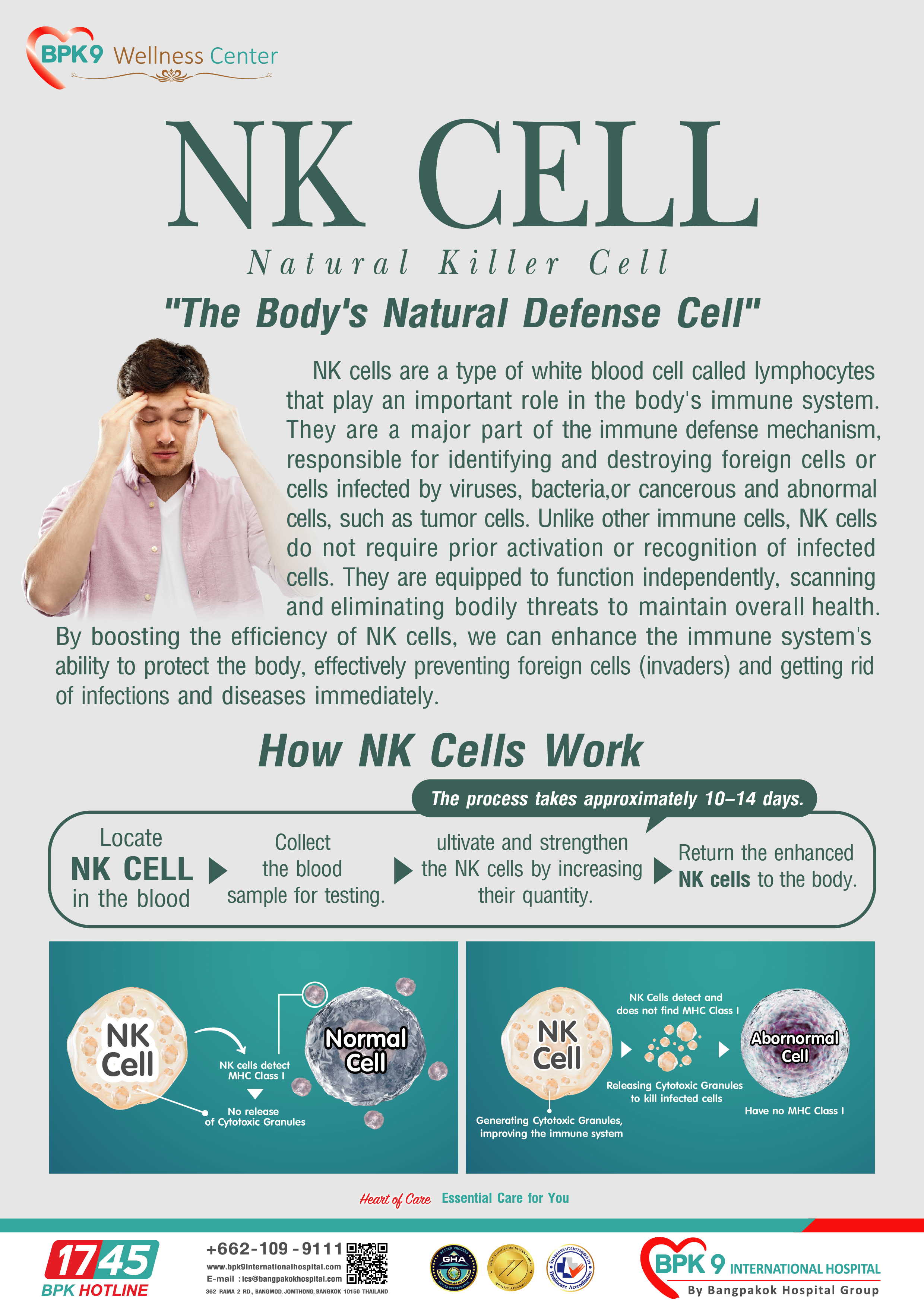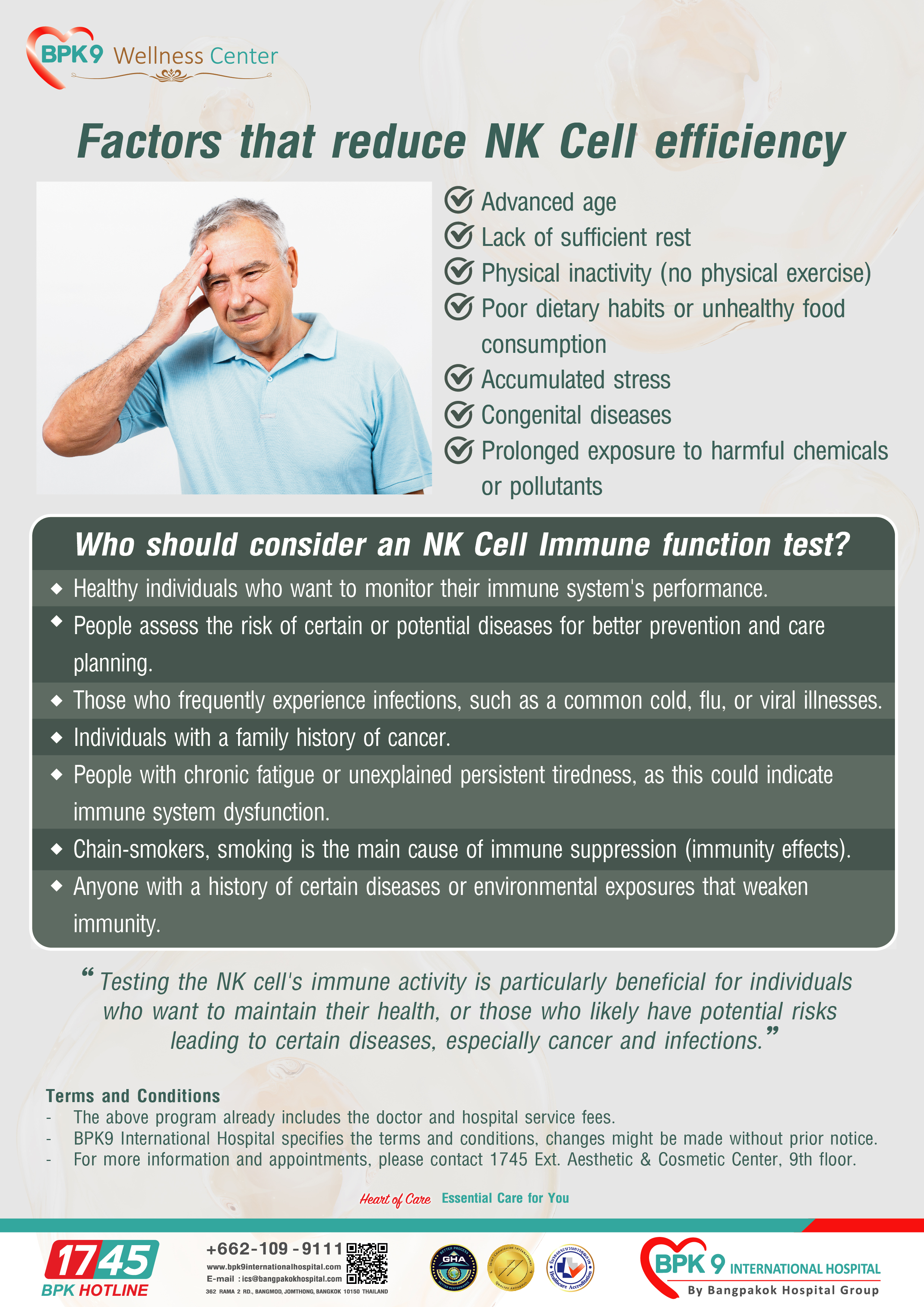NK Cell Therapy


Natural Killer (NK) Cells: The Body’s Frontline Defenders
Natural Killer (NK) cells are extraordinary components of the immune system, celebrated for their innate ability to detect and destroy infected, stressed, or cancerous cells without prior exposure or sensitization. These vigilant lymphocytes continuously patrol the body, ensuring swift action against potential threats—playing a vital role in maintaining immune surveillance and balance.
How NK Cells Work
Unlike adaptive immune cells that require specific antigens to mount a response, NK cells are equipped with a dynamic set of activating and inhibitory receptors. This enables them to distinguish between healthy cells and those that exhibit signs of infection, malignancy, or abnormality. Upon recognition of a threat, NK cells deploy powerful cytotoxic molecules such as perforin and granzymes, triggering apoptosis (programmed cell death) in their targets. Additionally, NK cells secrete key cytokines like interferon-gamma (IFN-γ), which amplify the immune response and recruit other immune players to the site of infection or injury.
Benefits of NK Cells
- Rapid Response: NK cells act immediately against infected or abnormal cells, making them crucial in early defense, especially during viral infections and initial tumor formation.
- Broad Targeting: They can attack a wide range of cells, including those infected by viruses, cancer cells, and cells undergoing stress or transformation, without needing prior sensitization.
- Immune Regulation: Through cytokine release, NK cells help shape and strengthen both innate and adaptive immune responses, ensuring a well-coordinated defense.
- Therapeutic Potential: NK cells are at the forefront of innovative therapies, especially in cancer treatment. NK cell-based immunotherapies, including NK cell infusions and engineered NK cells, are being explored to enhance cancer clearance and combat refractory or relapsed malignancies.
Who Can Benefit from NK Cell-Based Therapies?
- Cancer Patients: NK cell therapies are particularly promising for individuals with hematologic malignancies (like leukemia and lymphoma) and solid tumors. Patients who have relapsed after conventional treatments or who have resistant cancers may find new hope in NK-based interventions.
- Individuals with Viral Infections: Chronic or hard-to-treat viral infections, such as hepatitis and certain herpesviruses, may benefit from therapies that harness or boost NK cell activity.
- Immune-Compromised Individuals: Those with weakened immune systems may benefit from approaches that enhance NK cell function, providing an added layer of defense.
- General Health and Wellness: Emerging research in regenerative and preventive medicine is exploring the use of NK cells to support immune health and overall well-being, particularly in aging populations.
NK cells are indispensable sentinels of the immune system, offering both immediate protection and long-term immune regulation. Their natural cytotoxicity, coupled with the growing potential of NK cell-based therapies, holds immense promise for combating infections, cancers, and immune-related disorders. As research continues to advance, NK cells are not just guardians of health—they are paving the way for transformative medical breakthroughs.

